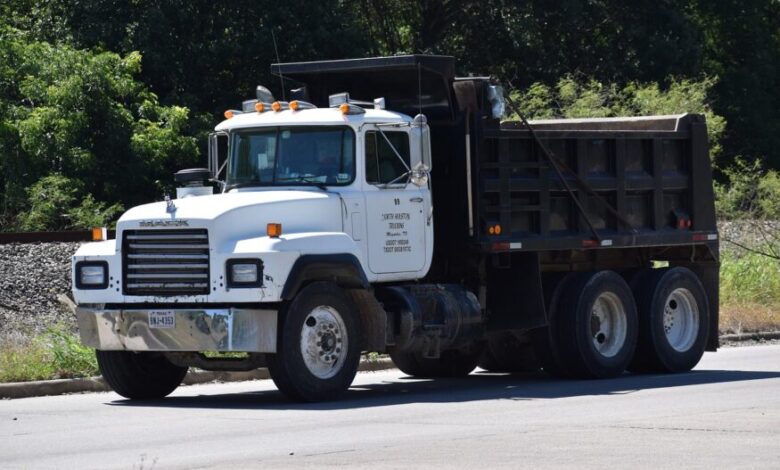Bridging the Load: The Role and Value of a Dump Truck Broker in Modern Logistics

In an age where speed, efficiency, and specialization define successful industries, logistics remains one of the most vital and dynamic sectors. Within this landscape, the movement of bulk materials—such as dirt, gravel, sand, demolition waste, and construction aggregates—is a critical operation, especially in construction, mining, and infrastructure projects. Often unseen but absolutely essential to these operations is a niche player: the dump truck broker.
These professionals are the matchmakers of the hauling world, connecting those who need materials moved with those who own and operate dump trucks. They streamline transportation logistics, ensure equipment availability, reduce downtime, and provide cost-effective hauling solutions. In short, they keep projects running smoothly and efficiently, behind the scenes.
This article dives deep into the function, benefits, and evolving nature of dump truck brokerage—explaining why this role is becoming increasingly important in both small-scale jobs and large-scale industrial projects.
Understanding the Dump Truck Ecosystem
Before examining the role of a broker, it’s important to understand the landscape they operate in. Dump trucks are vital in industries like:
- Construction and Infrastructure
- Demolition
- Mining and Aggregates
- Landscaping and Excavation
- Municipal Projects (e.g., roadwork, drainage, waste removal)
Every day, these sectors generate millions of tons of material that must be moved. Whether it’s hauling gravel to a job site, removing debris from demolition, or delivering fill dirt to level a lot, dump trucks are indispensable. But operating these trucks, maintaining them, and ensuring they’re scheduled effectively is a logistical challenge.
This is where a dump truck broker steps in—offering a flexible, scalable solution to the complex transportation puzzle.
What Does a Dump Truck Broker Actually Do?
In essence, a dump truck broker acts as an intermediary between two key players:
- Clients (contractors, developers, municipalities, or individuals) who need material hauled.
- Owner-operators or fleet owners who have the dump trucks and manpower to do the job.
Their responsibilities may include:
- Coordinating Jobs: Matching the right truck with the right project based on distance, load type, and timing.
- Managing Logistics: Ensuring materials are picked up and delivered on schedule.
- Negotiating Rates: Balancing fair compensation for haulers while keeping project costs competitive.
- Providing Flexibility: Offering access to a network of drivers and trucks that can scale with project needs.
- Verifying Compliance: Ensuring trucks meet safety regulations, carry the proper insurance, and are operated by qualified drivers.
Just as freight brokers revolutionized over-the-road trucking, dump truck brokers have brought much-needed structure and efficiency to a once chaotic segment of local logistics.
Why Use a Dump Truck Broker?
Hiring directly or owning a fleet might seem like a more straightforward solution for contractors. However, there are numerous advantages to partnering with a broker instead.
1. Access to a Large Network
A broker typically works with a broad roster of independent drivers and fleet operators. This means clients get instant access to equipment and drivers without long lead times or the need to maintain relationships with dozens of haulers.
2. Reduced Overhead
Maintaining an internal fleet comes with high fixed costs: truck maintenance, insurance, driver wages, fuel, storage, and scheduling. Using a broker eliminates these expenses while still ensuring equipment is available when needed.
3. Project Scalability
Some projects need only one or two trucks; others require 20 or more on a rotating schedule. A dump truck broker can scale services up or down as the job demands, making it an ideal solution for fluctuating workloads.
4. Improved Efficiency
Because brokers specialize in logistics, they can optimize routes, minimize wait times, and reduce the likelihood of idle equipment. This translates to time and cost savings on the ground.
5. Regulatory Expertise
Hauling often involves navigating permits, local ordinances, environmental rules, and safety regulations. Brokers are well-versed in these aspects and ensure their partner operators stay compliant.
How Brokers Benefit Haulers and Owner-Operators
The benefits of dump truck brokerage aren’t limited to clients. Owner-operators and small fleet owners also gain tremendous value:
- Consistent Work: Brokers provide access to a steady stream of jobs without the hauler having to hunt down leads.
- Streamlined Payments: Many brokers handle invoicing and payments, reducing the financial and administrative burden on drivers.
- Back-End Support: Scheduling, customer relations, and job logistics are often handled by the broker, allowing operators to focus on driving.
- Market Reach: Independent drivers may not have the marketing budget or industry contacts to find high-paying work. Brokers bridge that gap.
For many small operators, working with a dump truck broker transforms sporadic income into a more predictable, manageable business.
Dump Truck Brokers in the Digital Age
Technology is reshaping every aspect of logistics, and dump truck brokerage is no exception. In recent years, several digital platforms have emerged, functioning as marketplaces that connect contractors with available haulers in real-time. These platforms bring transparency and efficiency, offering features like:
- GPS tracking of trucks
- Instant job postings
- Digital load tickets and receipts
- Automated invoicing
- Rating systems for drivers and clients
This digital transformation is especially important in high-volume, high-pressure environments like construction. Automated dispatching, live updates, and load tracking reduce delays and errors, keeping projects on budget and on time.
While not every dump truck broker operates through an app, the adoption of software tools and platforms is rapidly becoming the industry standard.
Challenges in the Brokerage Model
Despite its many benefits, dump truck brokerage isn’t without its challenges:
- Driver Shortages: The overall shortage of qualified CDL drivers can impact truck availability.
- Weather Dependence: Many hauling jobs are weather-sensitive, which can lead to cancellations and rescheduling.
- Rate Fluctuations: Fuel prices and material demand affect hauling rates, requiring brokers to remain flexible and informed.
- Coordination Complexity: Large projects with multiple haulers and drop sites can create logistical bottlenecks.
Successful brokers must be skilled multitaskers, excellent communicators, and problem-solvers. Their value lies not just in connecting two parties but in making sure those connections work smoothly, even under pressure.
Becoming a Dump Truck Broker: What It Takes
For those interested in becoming a broker in this niche field, it’s not as simple as posting jobs online. It requires:
- Industry Knowledge: Understanding materials, equipment types, regulations, and regional logistics is crucial.
- Strong Network: Building relationships with both clients and haulers is essential for long-term success.
- Organizational Skills: Coordinating schedules, tracking loads, and managing payments demand a high level of precision.
- Legal Compliance: Some regions require brokers to be licensed or bonded, and to meet certain insurance standards.
- Tech Savvy: Using platforms, route planning tools, and communication systems helps stay competitive.
It’s a career path that blends customer service, logistics, sales, and negotiation—making it a dynamic and rewarding role for those with the right skill set.
Final Thoughts: A Key Link in the Hauling Chain
The success of many construction and infrastructure projects hinges on moving materials efficiently and affordably. In this high-demand, time-sensitive environment, dump truck brokers provide the coordination and support necessary to make it all happen.
Whether you’re a contractor needing reliable hauling services or an independent driver looking for steady work, working with a dump truck broker can simplify your business and improve your bottom line. Their role might be behind the scenes—but without them, the wheels of the industry would turn far more slowly.




